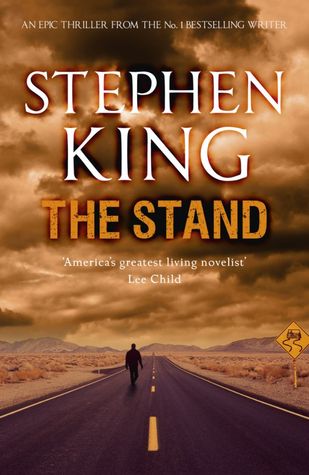
About the Book
First came the days of the plague…
After the days of the plague came the dreams.
Dark dreams that warned of the coming of the dark man. The apostate of death, his worn-down boot heels tramping the night roads. The warlord of the charnel house and Prince of Evil.
His time is at hand. His empire grows in the west and the Apocalypse looms…
My Review (3 / 5 Stars)
This is probably the lowest rating I've ever given a Stephen King book. And I was really torn between three and four stars.
Allow me to explain:
First of all, I really enjoyed the story. It's incredibly well plotted and detailed, and the characters are all very fleshed out. The writing, in general, is exquisitely good, as it typical of "Uncle Stevie".
The thing is, this book is LONG. I bought it on Kindle, and I inadvertently bought the "unabridged version", which is supposed to contain over 400 extra pages, that weren't included in the original because of financial concerns at the publisher. Since I'd never read the story before, and knew next to nothing about it, I wasn't to know.
Having now read it over the course of just under a month and a half, I can say with confidence that it could've done without those extra 400 pages. And I could tell pretty easy which pages weren't in the original because they're mostly the ones that need some editing care. It's plain as day, actually, that certain scenes, certain chapters, in some cases whole characters, were simply "bolted on".
People tell me that The Stand is the scariest book they've ever written. Well, fear is very subjective, because I hardly found it scary at all. It was a bit creepy at times (most notably the ouija board scene), but nothing I would call "scary". It IS a very religious story, and maybe the reason why I wasn't particularly scared is because of my religious background, and the fact that I was able to separate the things that I KNOW could happen (and do happen) in real life, from the things that couldn't.
I will say that my first encounter with Randall Flagg was a good one. He may just be the best villain ever conceived. Which book featuring him should I read next?

